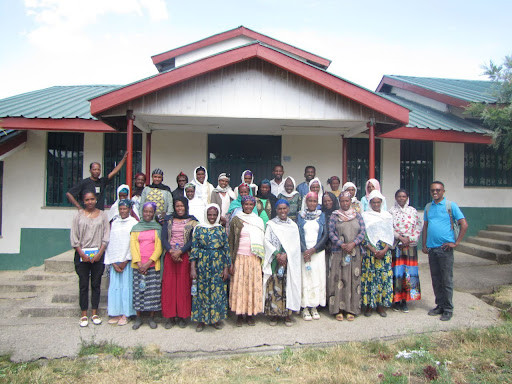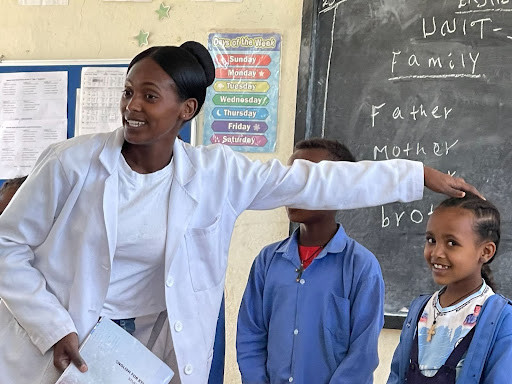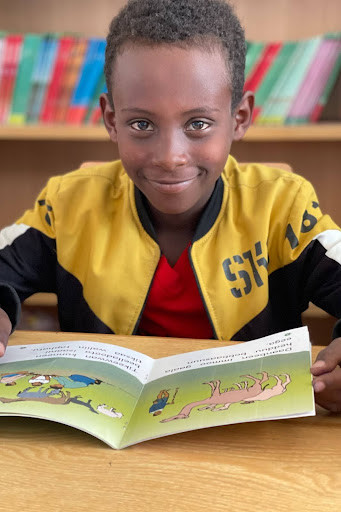A Lifeline in Ethiopia: How HMCHA is Rewriting Children's Futures

In a world where statistics often reduce human suffering to numbers, the HMCHA (Holistic Ministry of Children of the Horn of Africa), a non-profit public charity organization, stands as a reminder that behind each figure lies a child with a name, a dream, and the right to hope. Founded in Minneapolis in 2007 by an Ethiopian refugee, Megersa Kumbi, the organization has spent nearly 20 years empowering children and families in rural Ethiopia through education, nutrition, and community-driven support.
The story of HMCHA is rooted in resilience. Kumbi fled Ethiopia during the violent communist regimes, walking for days through Sudan before eventually reaching the United States. Years later, he returned to his homeland, following what he described as a recurring vision of a mountain and a calling to help his people. "He kept having this dream of a mountain," recalls Carol Pfleiderer, the sponsor coordinator of the organization. "When he finally went back, he saw the very mountain from his vision. That was the beginning."
HMCHA began as a small project to provide clean water and sponsor six children, which has grown into a thriving network of support. Today, HMCHA has worked with hundreds of children, many of whom have since graduated or transitioned out of the program, and maintains partnerships with several schools across villages in Ethiopia's Oromia region.
Pfleiderer notes that the scale of the challenges Ethiopians face is dire. Families live without running water or electricity, meals are uncertain, and children grow up facing an impossible choice: work to keep their families afloat, or pursue an education that might one day break the cycle of poverty. In some communities, children eat only four times a week. Classrooms are overcrowded, with one teacher responsible for 70 or more students. For too many, the future is already written: a life of labor, illiteracy, and struggle.
And it's these perilous circumstances that HMCHA's sponsorship model aims to change.

For $360 a year, just $30 a month, a sponsor can ensure a child has food, school uniforms, supplies, medical care, and even a modest savings account to help them transition into adulthood. "More than half of the sponsorship goes toward food for the family," explains Pfleiderer. "The rest provides essentials like school uniforms, notebooks, medical checkups, and even a little nest egg for when the child finishes school."
Beyond sponsorships, the organization has taken a holistic approach to community building. At the request of local committees, HMCHA has constructed a pedestrian bridge to connect isolated villages, a community center with a library and computer lab, and a school that now offers education through sixth grade. They have provided safe housing for high school girls who would otherwise face dangerous commutes, and they've created income-generating programs to empower single mothers with small business skills and financial independence.
"It's never been about coming in as outsiders with the answers," Pfleiderer stresses. "We sit with the communities and ask them, 'What do you need most?' The bridge, the community center, the school, these were all their priorities."
The organization's impact extends to training as well. Several local teachers have received training in critical thinking and problem-solving instruction, helping to improve the quality of education across rural schools. Children are also enrolled in Saturday programs for tutoring, health lessons, and activities designed to strengthen both academics and community ties.
But the work is not without heartbreak. Poverty and harmful traditional practices continue to put children at risk. Some have been forced into farm labor, starting first grade as teenagers. Others have faced the threat of kidnapping, particularly young girls. Without intervention, a child's entire life trajectory can regress. HMCHA stands in that gap, offering hope where it rarely exists. They have partnered with women's safety organizations to combat these dangers, while providing safe housing and consistent advocacy.

Despite the difficulties, stories of transformation are everywhere. Children once unable to write their own names now pen letters twice a year to their sponsors, showcasing their growth in literacy and confidence. One boy who had reached third grade without being able to read restarted his education at HMCHA's school and is now thriving.
These successes come from the generosity of those willing to look beyond borders. "We can't do this without support," says Pfleiderer. "But it's not just about helping others, it's about being part of transformation, of seeing hope rise out of poverty."
As HMCHA approaches its 20th year, its mission remains deeply personal and profoundly urgent: to provide children not just with education, but with dignity, opportunity, and the chance to dream. The work continues because ordinary people choose to believe that even the smallest gift, whether $5 or a full sponsorship, can change a life.
"Every contribution makes a difference," Pfleiderer says. "If anyone can sponsor just one child, that already sets off a ripple effect for thousands of great things to occur; every penny matters. Because to that one child, it changes everything."
© Copyright IBTimes 2025. All rights reserved.





















